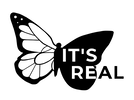Blog Posts
Scatterplots and Sadness
by Ana Chen
While trying to write poetry, I often try to create alliterating or auditorily-appealing phrases (see what I did there?). One such phrase, which didn’t make it into a poem, is a culmination of the collateral.
One of my big beliefs is that there’s no underlying meaning to life. Things happen at random and we just try to thread a line through the scatterplot of the past. While I won’t delve into religion or metaphysics, I think it suffices to say that we are all a collection of the unpredictable. Sometimes we can orient or direct ourselves in a certain direction, but we have very little control over anything outside ourselves. And we can only take ourselves so far - after that, it’s up to luck and circumstance.
That being said, I’ve been sad these last few weeks. No, not really sad. But it’s been a paradoxical time: filled with both ups and downs, raw with hurt and mellowed with contentment. I discussed emotional dependence in one of my previous essays - I guess my moods during these last weeks are the result of emotional attachment to too many different things. My period and the Seattle weather probably don’t help.
These mood swings (I was going to be fancy and call them fluctuations, but I’m trying to circumvent my typical obnoxiously loquaciously superfluous diction) have only convinced me of life’s randomness. I suppose this might be an obvious for some of you. But I, someone who loves order and neatly-tied stories, still sometimes struggle to accept this.
So yes, there’s no underlying meaning to life. But believing that we do have a line of best fit, that our sadness will take us somewhere, is such a powerful coping method that it defies rationality. This belief in a overarching trajectory is the same one that makes death and grief bearable. It’s the same one that allows humans to pursue both destructive and defiant habits.
The danger in this coping method is our inability to take things at face value. Of course it’s nice to see something as a learning opportunity, or to connect the dots in retrospect. What I’m trying to find is a balance between analyzing an event/ascribing meaning to it and taking it at face value/just letting it be. Maybe those two courses of action aren’t mutually exclusive, but are simply a matter of perspective, with the latter being a lot easier in retrospect. Or maybe I’m overanalyzing this to the point of ridicule. After all, ana is found in both analysis and anarchy.
Back to the topic: another balance I’m trying to find is the one between dwelling in sadness and moving on. It’s easy to dwell during spring break, even with the threat of AP and IB tests. There are clear correlations between the amount of work one has and the amount of time one spends being sad - not only does work squeeze away time left for dwelling, but it also heralds a sense of achievement that drives away sadness.
But should there be a limit to time spent on dwelling or analyzing or overthinking or whatever you call it? Would it be unfair to impose limitations on a process of grief or loss or defeat? How much do such limitations - or a lack thereof - depend on circumstance?
I can’t even answer those questions for myself. Ironically, while the first “balance” I mention sounds more convoluted, it ultimately has a much neater answer than the second “balance.” Or maybe that’s just because the first is broader and the second much more nuanced. Or maybe I should stop thinking about this and go to bed - I drove on the highway for the first time today and that left me strangely exhausted (and with a permanent phobia of large trucks).
I guess I made a lot of obvious points in this, or at least put some common sense into words. Either way, this helped me a bit with my own sadness. While I’m hesitant to say that overthinking is a healthy way to alleviate sadness, I can testify to the healthiness of poems and art.
But if you’re not up for psychoanalyzing yourself or the past or for creating angsty writing, I guess there is comfort to be found in one of my favorite phrases of 2019: it do just be like that sometimes.
